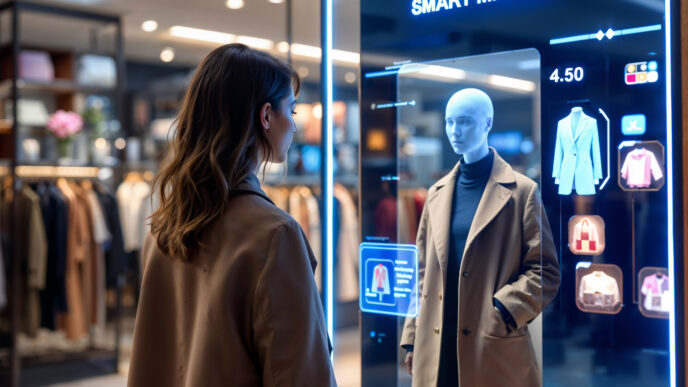The Future of AI Agents: How Vertical AI is Transforming Industries
What is Vertical AI? The Next Evolution of AI Technology
Traditional software applications are becoming obsolete. Instead of using multiple platforms for different tasks, AI-driven agents are emerging as specialized solutions that understand specific industries and automate complex processes.
This shift is not just a futuristic concept—it’s happening right now. Vertical AI is reshaping industries, improving efficiency, and offering businesses a competitive edge.
Why General AI Models Are Not Enough
Popular AI tools like ChatGPT, Gemini, and Claude have transformed how we work. However, they come with limitations:
- Hallucinations & Errors – Large Language Models (LLMs) sometimes generate inaccurate or misleading information.
- Lack of Deep Expertise – They rely on vast public datasets but lack in-depth knowledge of specific industries.
- Limited Customization – A general-purpose AI cannot outperform an AI designed for a niche market.
Tech giants like Microsoft, Nvidia, and Meta are now focusing on Vertical AI—intelligent agents tailored for specific domains, continuously improving with real-world data.
How Vertical AI Agents Work
Vertical AI agents are autonomous systems specialized for distinct industries. Unlike traditional software, they:
- Leverage proprietary datasets for high accuracy.
- Automate complex tasks, reducing human intervention.
- Continuously improve by learning from real-time data.
Example Use Case:
A finance-focused AI agent can analyze raw financial data, detect market trends, and recommend strategic decisions—eliminating the need for manual analysis.
Industries Being Transformed by Vertical AI
1. Legal & Compliance
Law firms now use AI agents to:
- Draft contracts automatically.
- Analyze past case law.
- Predict legal outcomes.
2. Finance & Accounting
Instead of manually reviewing invoices, AI-powered solutions:
- Automate tax and financial audits.
- Optimize tax strategies based on regulations.
- Detect anomalies to prevent fraud.
3. Software Development
AI coding assistants, like Devin, promise to:
- Write, test, and deploy code autonomously.
- Reduce debugging time significantly.
4. Smart Cities & Urban Mobility
AI-based parking systems help:
- Reduce congestion by up to 30%.
- Optimize pricing based on demand.
- Provide real-time availability updates.
5. Intelligent Avatars & Virtual Interactions
Platforms like Character AI allow businesses to create AI-powered customer service agents that provide human-like interactions.
Why Startups Are Investing in Vertical AI
According to Y Combinator, the Vertical AI market is projected to be 10x larger than traditional SaaS because:
- Different industries require tailored AI solutions—healthcare AI differs from finance AI.
- Global regulations vary, requiring localized AI compliance models.
- Industry-specific AI outperforms general AI in accuracy and reliability.
How to Stay Ahead in the AI Revolution
To succeed in the age of AI automation, businesses must:
1️-Go beyond basic AI integrations – Specialization and fine-tuning are key.
2️-Invest in high-quality data – AI is only as good as its training data.
3️-Focus on solving high-value problems – The best AI applications transform industries, not just automate tasks.
4️-Prioritize user experience – AI interfaces should be intuitive and engaging.
5-Monitor AI industry trends – Keeping up with advancements can provide a competitive edge.














